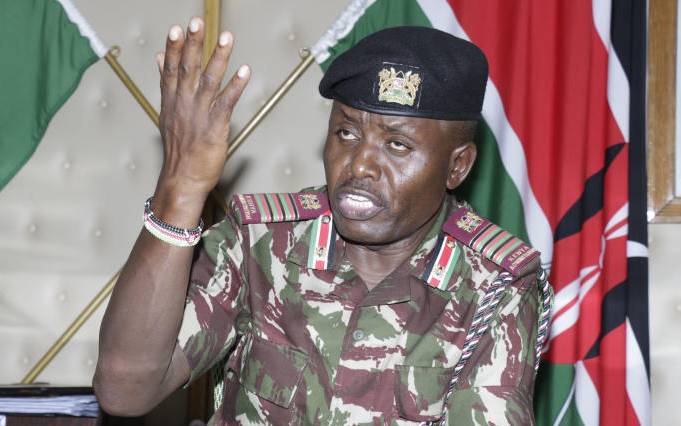×
The Standard e-Paper
Stay Informed, Even Offline

Rift Valley Regional Coordinator George Natembeya during an interview at his office in Nakuru on July 25, 2019. [Kipsang Joseph/Standard]
Rift Valley Regional Coordinator George Natembeya has promised to help end cattle rustling blamed for insecurity and poor development in the region.